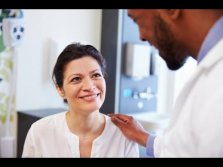Recently, when I was asked to appear as a guest on TVJ’s popular Smile Jamaica programme to speak about plastic surgery, I was asked a seemingly easy question by the host, Neville Bell.
He asked: “Plastic surgery, is it risky?”
I immediately felt that the answer to this question was too complex to be answered in one brief statement. However, it is a relevant and central question in my line of business. After all, life is a series of calculated risks. No outcome of anything is ever 100 per cent certain. Any attempt at anything always has a chance of complete failure. Likewise, there are risks that everyone should take in life because they are almost always necessary ingredients in the recipe that is happiness.
We take risks every day for various reasons and the quality of our lives depend on the choices we make and the calculated risks we take. There are risks we take out of necessity. For example, we have to eat food, even though it may be spoiled, unhealthy or even poisonous.
The risk of pregnancy and birth are other examples. Risks and the fear of the threats they pose to us are hugely subjective and to a large extent, highly irrational. The chance of dying in a motor vehicle accident on the way to the airport is by far higher than the risk of dying in a plane crash (their lifetime risks, respectively, are one in 77, compared to one in five million), yet I don’t know anyone with a car driving phobia.
We take risks for the sole purpose of making us happy, like bungee jumping or free climbing, or satisfying needs for things that we are addicted to, like smoking. The ultimate judge of the risks we take is our own fear of the outcomes.
DUE DILIGENCE Marcia P. is a breast cancer survivor and has managed to regain strength and happiness from her devastating disease and the hardships of her treatment. She has learned to live with one breast and what in the beginning seemed like a small price to pay for just being alive, has over time become a real problem.
Not only because of the asymmetry of her body, causing problems like back pain and chronic headaches, but her self esteem and her confidence in her womanhood have suffered severely. So, for some years she has been contemplating breast reconstruction.
As she said to me, all of her friends advised her not to take the risk of surgery, but Marcia was certain that she was ready to take this step. She said: “They can say whatever they want; all of them have their two breasts.”
In her friends’ assessment, there is only everything to lose and nothing to gain for them because they didn’t want to lose her. However, it was very hard for them to relate to her pain or the possible benefit that a breast reconstruction could mean for her quality of life.
In our consultations, we spoke about the different options, the possible outcomes and, of course, the possibility of complications and risks.
So to answer Neville’s question, risk assessment in plastic surgery is important and the first step in reducing risk is doing your due diligence when electing to undergo a procedure. Find out who is performing the surgery. What is his/her medical background?
In the perception of many people, breast reconstruction is a major procedure, however, liposuction is hardly a surgery. This could not be further from the truth. Risk is reduced based on the medical competence of the surgeon, not as a result of the procedure.
The guidelines that have been implemented by the International Society of Plastic Surgeons (ISAPS) to make procedures like breast reconstruction and liposuction safer are very often unknown and often enough disregarded in the hands of untrained practitioners.
Risk is a necessary part of life but should never exceed the possible benefit to yourself. Good communication with your doctor and confidence in their training and skill should be the basis for any decision for any treatment period, not a bargain.
Dr Jan Hochtritt is a board-certified plastic surgeon living in Kingston, Jamaica. Questions and comments can be sent to
plasticsurgeryja@gmail.com and
yourhealth@gleanerjm.com